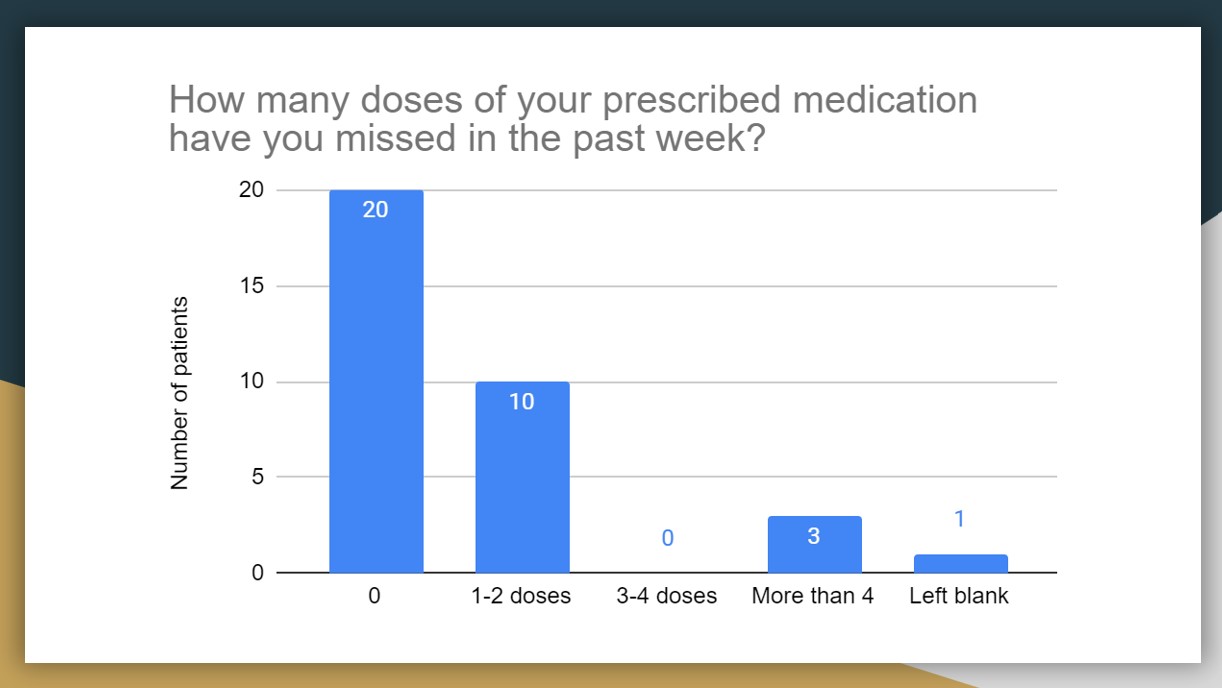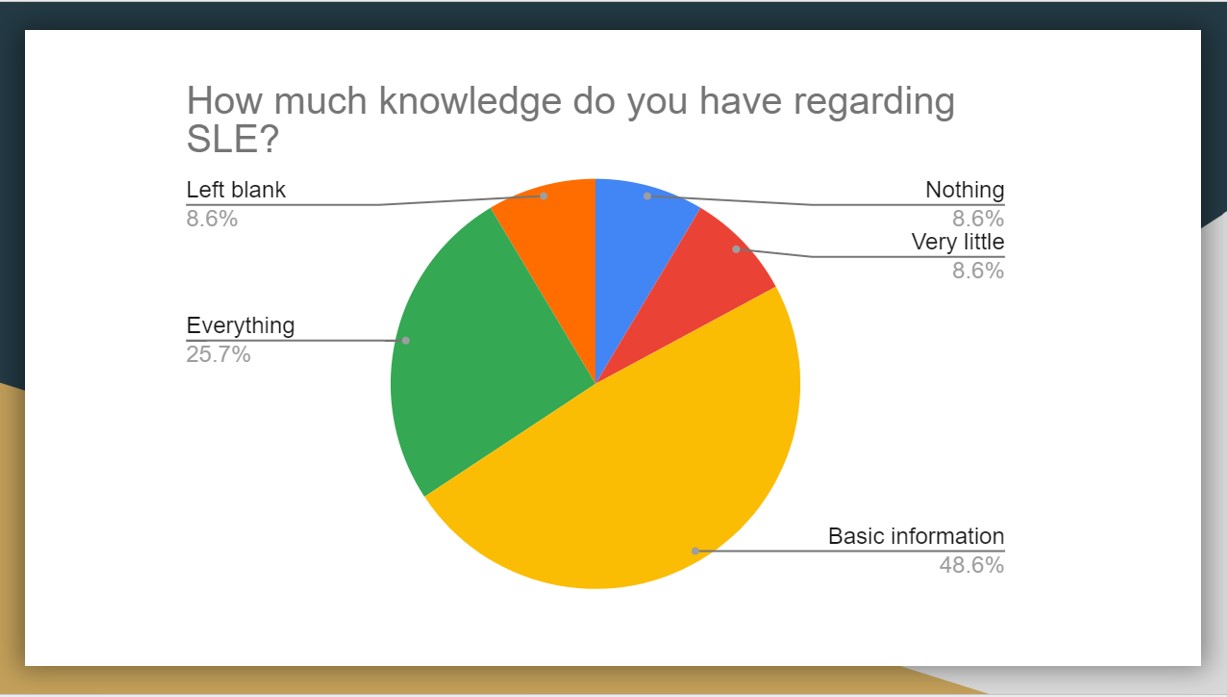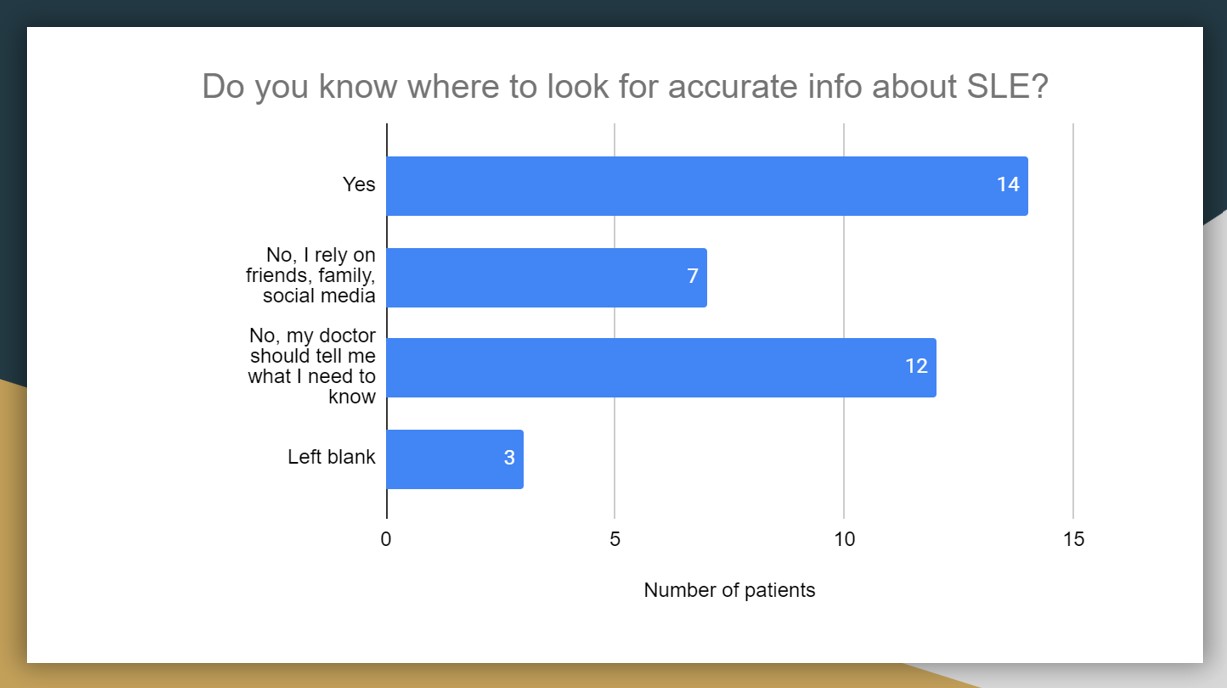Session Information
Session Type: Poster Session A
Session Time: 10:30AM-12:30PM
Background/Purpose: Kings County Hospital, located in Brooklyn, New York, sees an estimated 243 patients with Systemic Lupus Erythematosus (SLE) annually. The patient demographic is predominantly African American or African Caribbean. This population tends to have a higher rate of organ system involvement, increased active disease activity, and lower levels of social support. The intricate nature of lupus, with its ambiguity, inconsistency, and lack of predictability, poses significant challenges for patients. We aim to identify the educational barriers and support needs of our patients. In addition, we plan to create an intervention that can effectively bridge the knowledge gap and provide robust support for patients with SLE.
Methods: A 9-item survey was provided to patients with SLE during clinic visits. The survey included questions on medication adherence, barriers to management, current disease knowledge, and preferred educational methods. Educational interventions in the form of a mock video interview and a brochure were created based on the results of the patients’ preferred method. We plan to create a post-intervention survey to identify improvement in knowledge and compliance.
Results: Thirty-four patients responded to the survey. The majority of patients reporting knowing basic information (49%), very little (9%) or nothing at all (9%) about their disease. Forty-two percent of participants missed at least one dose of their prescribed medication in a given week, 27% did not understand the purpose of each medication they were taking, and 56% did not know where to find accurate information about their disease. When asked about their preferred methods of education, most participants favored direct education from their physicians (62%) and video-based learning (35%).
Conclusion: Our population with SLE has poor medication adherence and lacks medical knowledge about their disease. These findings illuminate the pressing need for an intervention that can effectively bridge the knowledge gap and provide robust support for patients with SLE. We plan to address these needs by utilizing the preferred educational methods of video and direct education from a physician, thereby improving patients’ medical knowledge of SLE and enhancing their ability to manage their condition effectively.
To cite this abstract in AMA style:
Gatsak D, Gandhi J, Feoktistov A, Golub E, Trevisonno M. Enhancing Lupus Patient Education and Support at Kings County Hospital [abstract]. Arthritis Rheumatol. 2024; 76 (suppl 9). https://acrabstracts.org/abstract/enhancing-lupus-patient-education-and-support-at-kings-county-hospital/. Accessed .« Back to ACR Convergence 2024
ACR Meeting Abstracts - https://acrabstracts.org/abstract/enhancing-lupus-patient-education-and-support-at-kings-county-hospital/



